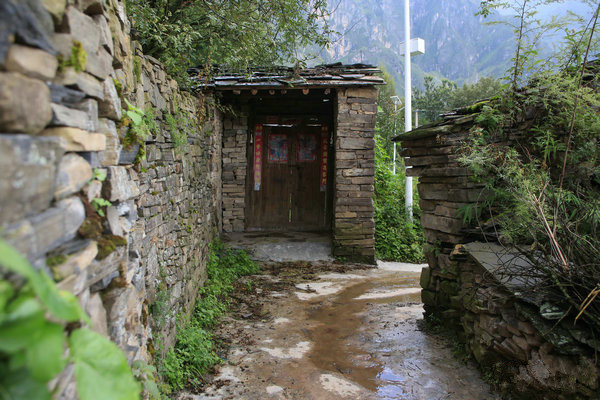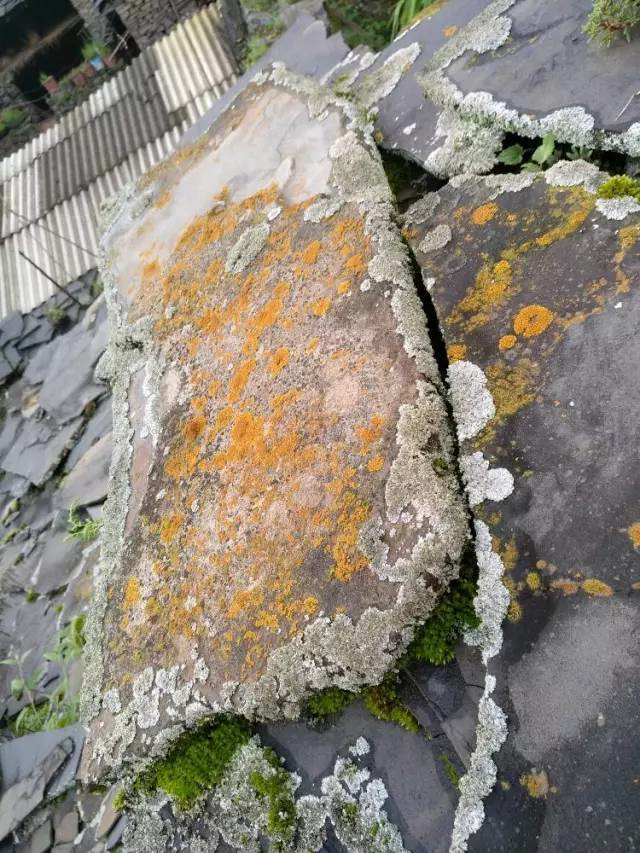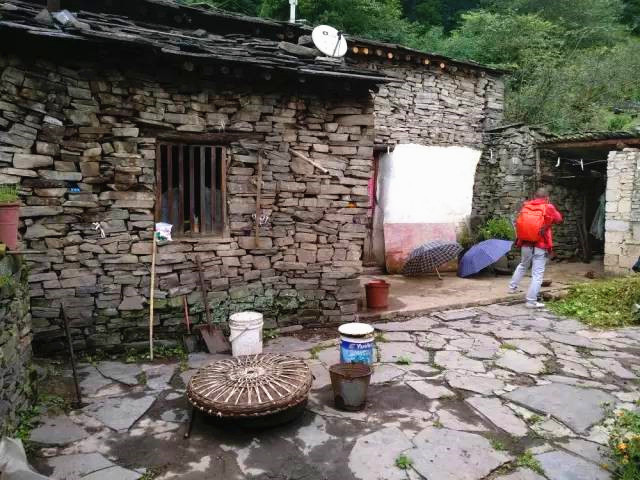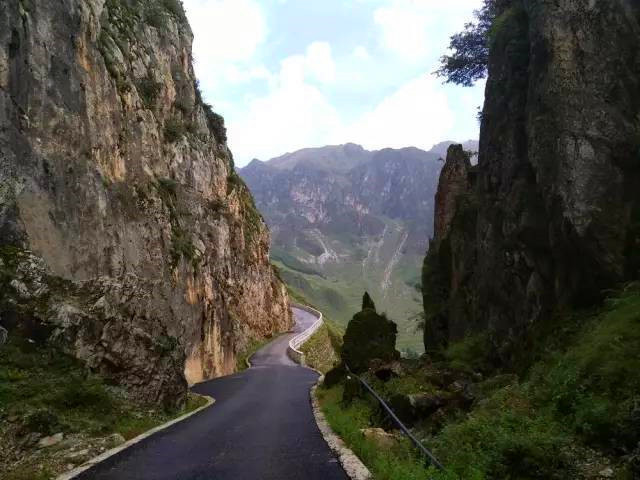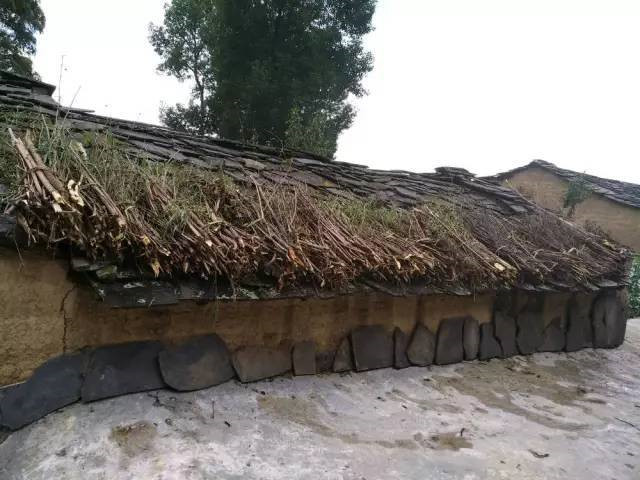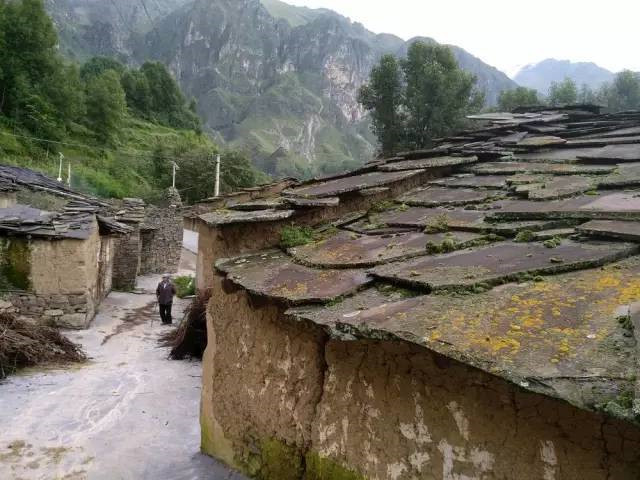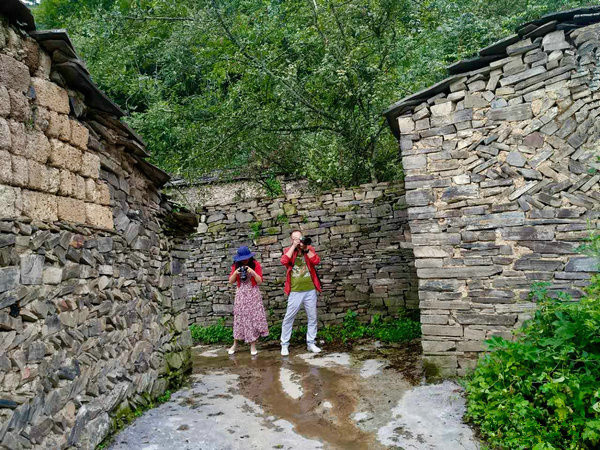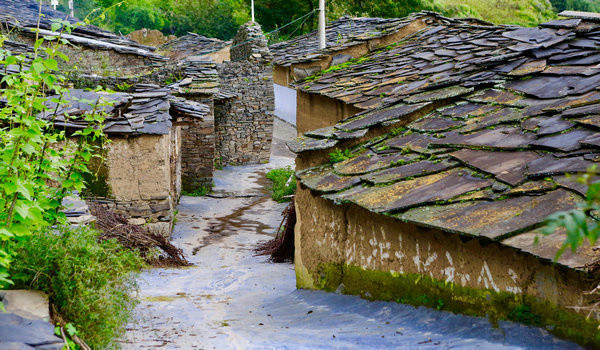Stony Village (Shitouzhai) of Dahai Town in Huize County, Qujing
Overview
Stony Village (石头寨村) is a unique scenic spot located in the natural village of Lunanqing (鲁纳箐) within Dahai Town (大海乡), approximately 10 kilometers southwest of Huize County (会泽县), Qujing (曲靖). The village is built against the mountains, characterized by stone walls, slate roofs, and stone-paved alleys, representing a traditional cultural village that remains deeply connected to nature.
Walking through the narrow, winding alleys and lingering by the stone walls at the village entrance provides a sense of returning to simplicity. For those accustomed to urban life, this village evokes strong feelings of nostalgia and rural warmth, resembling a cherished hometown.
Geographical Context
Dahai Town (大海乡) is situated in the main peak area of the Wumeng Mountains (乌蒙山), with an elevation of 4,017 meters, classified as a high-altitude region known for its harsh climatic conditions. The area is also famous as the source of the Jiajia River (蒋家沟) debris flow. To withstand the cold winds and humid air of the mountainous region, the hardworking and wise local people used the abundant stones and slates to construct distinctive stone houses.
Architectural Features
Stone Houses
The stone houses are an ingenious architectural creation by the farmers of Dahai Town. They typically have two designs: courtyard-style and single-family units, usually one to two stories tall. The framework is primarily made of wood, while the walls are built from stones of varying sizes, arranged according to their natural texture. The roofs are made of diamond-shaped slate tiles, providing a more solid and aesthetically pleasing structure than traditional brick or wooden buildings, making them emblematic of the Wumeng mountainous region.
Construction Process
The construction of these stone houses is remarkably simple and often done informally. Once a suitable foundation is selected and leveled, construction can begin. The houses are generally uniform in size and structure, lacking windows and featuring a central courtyard as the main source of light. The interiors retain their original forms without special decoration or modifications, resulting in a robust and heavy appearance.
Stony Village is a unique type of residential architecture in Qujing, distinguishing itself even from villages like Nuohei (糯黑村) in Shilin County (石林县), which have stone walls but tile roofs. The stone walls and roofs here reflect a natural distribution, creating a distinctive cultural landscape that bears witness to the historical development of traditional farming culture.
Cultural Significance
Being in Stony Village feels like entering a utopian world. The sounds of chickens and dogs can be heard, with trees interspersed throughout the area. The younger generation often works outside the village, leaving behind the elderly who maintain a slow-paced lifestyle, waking with the sunrise and resting at sunset.
The value of traditional cultural villages lies in their ability to witness the development of human agricultural civilization. However, they also face challenges from modernity. With improved road access, villagers now desire better living conditions. Some residents have begun to replace stone houses with modern concrete structures, and the once stone-paved paths are slowly transforming into cement roads.
Natural Beauty and Atmosphere
At the crossroads of Guanyinyan Village (观音岩村) in Dahai Town, a winding mountain road leads to a “time tunnel.” Entering this tunnel feels like stepping into another era, surrounded by stone-roofed houses nestled in the mountain’s embrace. The environment is tranquil, with everything appearing clear and serene.
In early autumn, the rain has polished the slate, making it glisten. Moss and small plants shine like jewels between the stones, lending a sense of life to the ancient, solid structures. The trees and gardens are lush, and the area is remarkably quiet, perhaps with birds observing us from their branches.
Even the garden fences are made of stacked stones. As we tread lightly, we might disturb a cat lounging on the stone fence, only for it to dart away just as a companion tries to capture a photograph.
The villagers are often busy working in the fields, but the few who greet us are genuine and warm. One kind woman invites us into her home, where everything seems naturally arranged, reflecting the irregularities of the stone floors beneath our feet.
A steep, rugged mountain path leads to the heart of this simple natural village, known as the second group of Guanyinyan Village (观音岩村二组) in Dahai Town, Yunnan Province (云南省会泽县). It is a remote village located 50 kilometers from the county seat.
Upon arrival, we spot a shepherd returning home, marking our entry into a serene stone world that emanates tranquility and history.
How to Get There
- From Qujing (曲靖): Travel by bus or taxi to Huize County (会泽县), then take local transport to Dahai Town (大海乡) and ask for directions to Stony Village (石头寨村).
- Public Transport: Check local schedules for buses heading to Huize County, and inquire about onward transportation to Dahai Town.
Travel Tips
- Best Time to Visit: Spring (March to May) and autumn (September to November) offer the best weather for outdoor exploration.
- Respect Local Customs: Dress modestly and behave respectfully, especially when interacting with villagers.
- Photography: Be mindful and ask permission before taking photographs of people or private properties.
- Explore Nearby Attractions: Consider visiting nearby cultural sites or natural attractions to enhance your experience.
